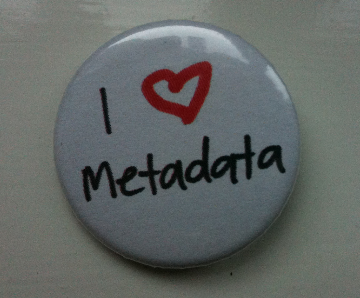Requesting 72 Spelling Variations on Five Search Terms Spells Trouble for Plaintiffs: eDiscovery Case Law
In Diesel Power Source et. al. v. Crazy Carl’s Turbos et. al., No. 14-826 (D. Utah, Feb. 23, 2017), Utah Magistrate Judge Brooke C. Wells denied the plaintiff’s Motion for Sanctions for the failure of the defendant to produce ESI, finding that the plaintiff had failed to sufficiently narrow its search terms by introducing 72 spelling variations on the five terms it proposed. Judge Wells also denied the defendants’ Motion for Order to Show Cause and for Sanctions, finding that the defendants had failed to provide any “certification that the parties made reasonable efforts to reach agreement on the disputed matters.”
Case Background
In this case regarding defamatory comments and photographs allegedly posted on the internet by the defendants about the plaintiffs (who were business competitors), Judge Wells led off her order by stating: “To state that the parties in this matter are not cooperating with each other is an understatement.” Throughout the case, each of the parties had taken turns filing motions for sanctions and each of the parties had complained to the court about the other side failing to provide requested discovery, causing Judge Wells to note that the case “has sat stuck in the quagmire of discovery despair” since it was filed in November 2014.
The plaintiffs sought sanctions against the defendants for their alleged failure to comply with a May 2016 court order compelling them to produce certain items. Following a hearing held in December 2016, it became apparent that some items were still outstanding. The court took the Motion for Sanctions under advisement before finding in January 2017 that the email search terms submitted by the plaintiffs were “overly generic and result in an undue burden placed upon Defendants”. The court ordered the plaintiffs to provide “five detailed search terms that must be more detailed than those previously submitted”.
Following the court’s order, the plaintiff provided the defendants with five search terms, but also provided 72 “spelling variations” on these search terms for a total of 77 search terms. Due to the number of search terms, the defendants filed a Motion for Order to Show Cause and for Sanctions, again asserting that the plaintiff was on a fishing expedition and also arguing that the plaintiff had failed to comply with the court’s May 2016 order, asking for sanctions citing to the Ehrenhaus factors. In response, the plaintiff argued it is easy to search using the 72 “spelling variations” if quotations are used.
Judge’s Ruling
In considering the motions, Judge Wells stated: “After considering all that has happened during discovery the court finds both parties to be at fault. First, the court finds Plaintiff has failed to sufficiently narrow its search terms. Previously the court found Plaintiff’s search terms to be overly generic placing an undue burden upon Defendants. Now, Plaintiff has taken the court’s instruction to provide five search terms to an extreme by supplementing it with 72 additional ‘spelling variations.’ Such an expansion is not within the spirit and intent of the court’s prior orders, its comments during hearings or within the principles of proportionality found in the discovery rules.” As a result, Judge Wells ruled that “Plaintiff is permitted to use the five search terms it has provided along with three listed spelling variations, three for each of the five search terms, for a total of twenty terms.”
As for the defendants’ motion, Judge Wells stated that “Defendants Motion for Order to Show Cause and for Sanctions not only misstates the record before the court, it also fails to comply with the Short Form Discovery Rules as set forth by Judge Nuffer and as set forth in Local Rule 37-1. Defendants have failed to provide any ‘certification that the parties made reasonable efforts to reach agreement on the disputed matters’ and that provides an additional basis to deny Defendants motion.” Judge Wells also noted that “[m]uch of Defendants motion is an attempt to draw the court’s attention away from Defendants own malfeasance. There is no excuse for Defendants failure to provide the federal tax returns and bank statements.”
Judge Wells also issued a warning to “both parties that going forward there needs to be a renewed spirit of cooperation otherwise the court will use its inherent powers to sanction the attorneys in this case for the continued stonewalling that has been a reoccurring theme in this litigation.”
So, what do you think? Should courts rule on limiting spelling variations of search terms? Please share any comments you might have or if you’d like to know more about a particular topic.

Disclaimer: The views represented herein are exclusively the views of the author, and do not necessarily represent the views held by CloudNine. eDiscovery Daily is made available by CloudNine solely for educational purposes to provide general information about general eDiscovery principles and not to provide specific legal advice applicable to any particular circumstance. eDiscovery Daily should not be used as a substitute for competent legal advice from a lawyer you have retained and who has agreed to represent you.



